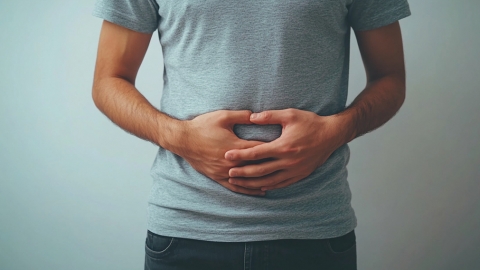How can I reduce a small belly?
A protruding lower abdomen may be caused by prolonged sitting, overeating, constipation, ascites, polycystic ovary syndrome (PCOS), and other factors. Generally, it can be reduced through lifestyle improvements, dietary adjustments, moderate exercise, and treatment of the underlying condition. If abnormalities occur, timely medical consultation is recommended. Detailed explanations are as follows:

1. Prolonged Sitting: Remaining seated for extended periods without sufficient physical activity can lead to fat accumulation in the abdominal area, forming a protruding lower abdomen. Prolonged sitting may also cause muscle laxity, further contributing to abdominal protrusion. It is recommended to increase daily activity levels, engage in regular aerobic exercise, reduce sedentary time, and stand up and move around periodically.
2. Overeating: Consuming excessive high-calorie foods, especially those high in sugar and fat, can result in surplus energy intake, which is then stored as abdominal fat. It is advisable to adjust dietary patterns by reducing intake of high-calorie foods and increasing consumption of low-calorie, high-fiber foods such as vegetables, fruits, and whole grains. Additionally, controlling portion sizes and avoiding binge eating are recommended.
3. Constipation: Improper diet and irregular作息 (作息 should be translated but the term was left in Chinese) lifestyle may lead to constipation, causing accumulation of waste and toxins in the intestines, resulting in abdominal bloating and a protruding lower abdomen. Symptoms may include difficulty in defecation and dry stools. It is recommended to increase dietary fiber intake, drink more water, and engage in appropriate physical activity to promote intestinal motility. If necessary, medications such as Bifidobacterium powder, Xingshen Yang'er granules, or Simotang oral liquid may be used under medical guidance.
4. Ascites: Ascites refers to excessive fluid accumulation in the abdominal cavity, which may be caused by various conditions such as cirrhosis or kidney disease. Ascites can cause abdominal distension resembling a protruding lower abdomen, and may be accompanied by symptoms such as shortness of breath and lower limb edema. Treatment involves addressing the underlying condition, including use of diuretic medications such as furosemide tablets, losartan potassium hydrochlorothiazide tablets, or spironolactone tablets under medical supervision, as well as procedures to drain the accumulated fluid. A low-salt diet and restricted fluid intake are also recommended.
5. Polycystic Ovary Syndrome (PCOS): PCOS is a common endocrine disorder in women that leads to elevated levels of androgens, resulting in abdominal fat accumulation and a protruding lower abdomen. Associated symptoms may include menstrual irregularities, infertility, and hirsutism. Management involves lifestyle modifications such as dietary control and increased physical activity. Under medical supervision, oral contraceptives such as cyproterone acetate tablets, drospirenone ethinylestradiol tablets, or clomiphene citrate capsules may be prescribed. Surgical intervention may be necessary in certain cases.
In daily life, maintaining a healthy lifestyle—including balanced nutrition, moderate exercise, and positive mental well-being—is essential for preventing and improving a protruding lower abdomen.




